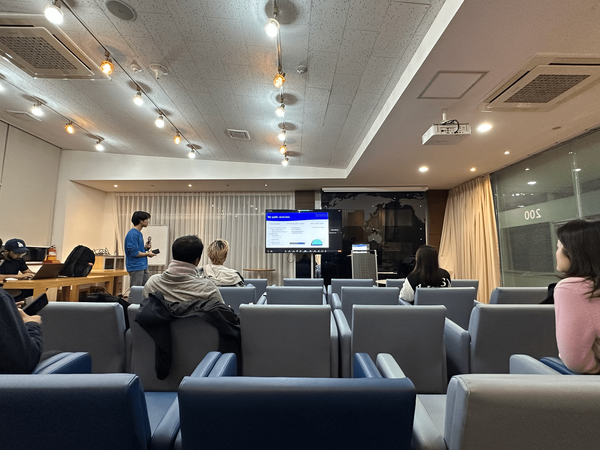The KAIST International Students Association (KISA) held their informative international students talk series, KAITalks, offline for the first time on October 25 and 26. The 9th KAITalks was held in the Global Lounge (W2-1) and was composed of two sessions spread across two days. KISA invited alumni currently resuming their work in research and academia for the first session, and alumni who have taken up positions in industry after graduation for the second.

KAITalks is a talk series hosted by KISA at least once a semester where international students or alumni share their experiences at KAIST and beyond with other students in KAIST’s international community. It was first held in 2021 and initially focused on sharing tips for obtaining internships and other job opportunities. In recent iterations of the talks, speakers have incorporated more of their university life and career, covering broader topics such as their academic journeys, extracurricular activities, and advice for aspiring researchers and engineers. The invited speakers are also more diverse, hailing from different countries and varying majors.
The 9th KAITalks featured four alumni speakers. Jantakan Nedsaengtip, an alumna with a bachelor’s degree from the Department of Chemistry, and Reynolds Addo-Akoto, currently a postdoctoral researcher in the Mechanical Engineering Research Institute, provided insights into their careers in academia during the first session. Arthur Baucour, an alumnus with a doctoral degree from the Department of Materials Science and Engineering, and Yuchun Yan, an alumna with a master’s and doctoral degree from the Department of Industrial Design, shared about their experiences in the workforce post-graduation during the second session. The talk lasted for an hour and a half, with the first 40 minutes given to the speakers for their presentations and the remaining time allocated for a Q&A session.
According to KISA’s Welfare Division, although KAITalks has been traditionally held through online platforms, the association envisions hosting fully offline talks in the future to encourage more interaction between the speakers and the participants. In pursuit of the eventual goal of offline talks, the Welfare Division organized the 9th iteration of KAITalks in a hybrid manner. For the 9th KAITalks, the Global Lounge was reserved for the first 30 registered offline participants and the Welfare Division’s members, and a Zoom meeting was opened to accommodate the four speakers and students who could not join the talk in person. Contrary to their expectation, however, there was an underwhelming number of offline participants. To improve future KAITalks, the Welfare Division intends to identify potential reasons for the lack of offline participation and also hopes to invite speakers to deliver their presentations in person.

